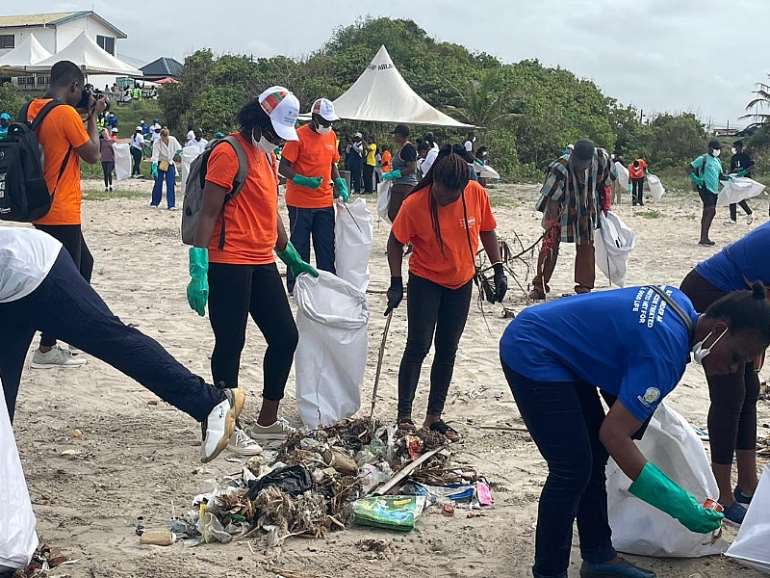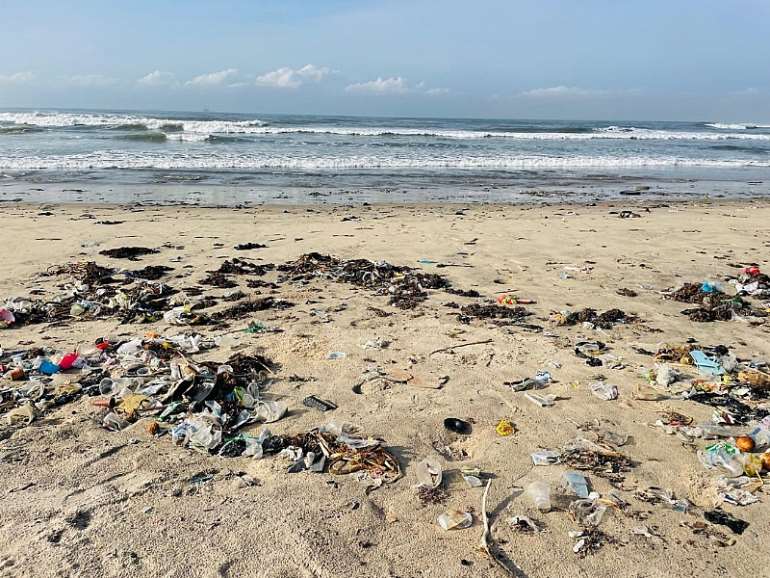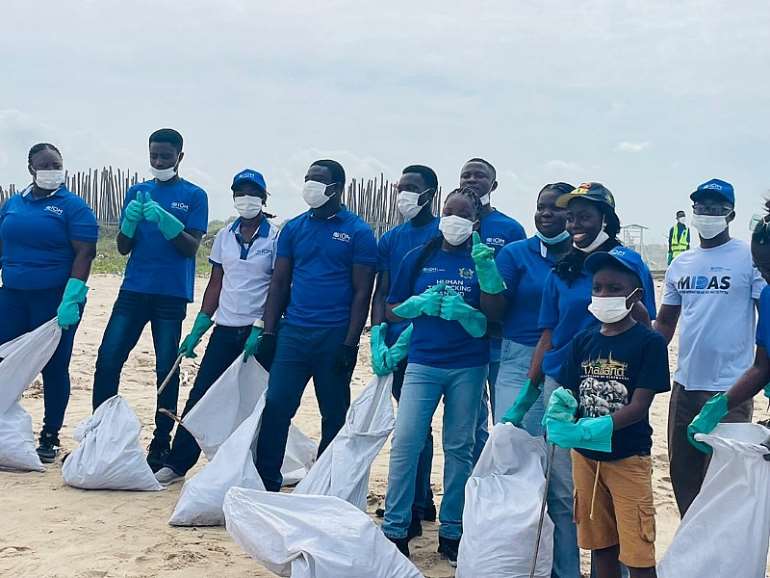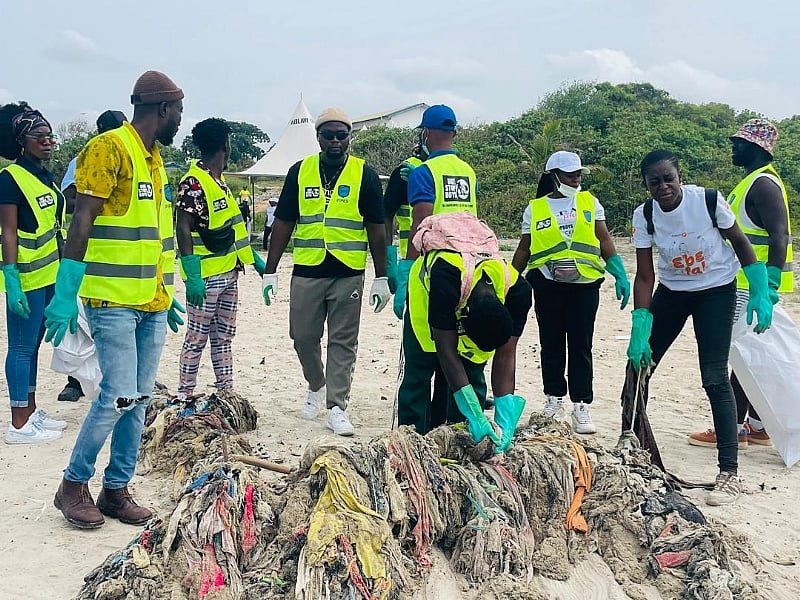The United Nations in Ghana, in collaboration with the Regional Maritime University (RMU), Plastic Punch, and other development agencies, has organized a massive beach clean-up in Accra to mark World Oceans Day 2025.
The event, held at the RMU Beach, was themed “Accelerating Action and Mobilizing All Actors to Conserve and Sustainably Use the Ocean.”
It aimed to raise awareness about marine pollution, draw attention to the 2025 UN Ocean Conference held in Nice, and promote sustainable waste management practices in response to growing threats to global marine ecosystems.
RMU Urges Commitment to Clean Oceans
Delivering the welcome address on behalf of Regional Maritime University (RMU), Captain Johnson Adjetey, a lecturer in the Political Science Department, highlighted the environmental and economic dangers posed by marine pollution.
“As an institution dedicated to training professionals for the maritime industry, we understand the critical importance of a clean ocean,” Capt. Adjetey said.

“Pollution—especially plastic waste—is a growing menace. Plastics clog ship engines, disrupt marine ecosystems, and endanger sea life. Fishermen often return with more plastic than fish.”
He applauded the collaboration and reaffirmed RMU’s commitment to ocean conservation. “If we don’t keep it clean, we threaten our own survival,” he warned.
UNESCO Calls for Behavioural Change
UNESCO’s Representative to Ghana, Mr. Edmund Moukala, called for a collective shift in mindset and behaviour to tackle plastic pollution. He urged all stakeholders—from institutions to individuals—to take responsibility for protecting Ghana’s coastlines.
“This is not just about talking; it’s about doing,” Moukala stated. “The protection of our oceans is not the government’s responsibility alone—it is a shared duty.”
He commended the involvement of Plastic Punch, Buzstopboys, Fidelity Bank, and the Norwegian Embassy, and highlighted the importance of grassroots education campaigns in homes and schools.
Annual National Clean-Up Initiative Announced
Moukala revealed that UNESCO and its partners plan to make the clean-up an annual national event. “This is not a one-off activity. We want to see this spread across the country—from Accra to Tamale, from the coast to inland communities,” he said.

Norwegian Embassy Reaffirms Support
The Deputy Ambassador of Norway to Ghana, Mr. Kyrre Holm, reaffirmed his country’s commitment to Ghana’s marine protection efforts. He noted that the initiative aligns with the ongoing collaboration between Ghana and Norway on ocean governance, fisheries, and coastal protection.
“Hopefully, the beach will be cleaner, but more importantly, we want people to understand the long-term damage caused by plastic waste,” he said. He encouraged responsible waste management to prevent marine pollution.
Citizen Science for Policy Action
Mr. Ampos Boah, a Board Member of Plastic Punch, stated over 400 volunteers participated in the exercise. He that the data collected will aid in formulating policy recommendations to address plastic pollution at the national
Boahene stressed that plastic has no place in the environment and called for evidence-based government measures. “Floods, diseases, and marine pollution are consequences of decisions,” he stated. “Today’s activity demonstrates that collective action is not only feasible but indispensable.”
Ecozoil Demands Continuous Public Education
Mr. Daniel Lamptey, the Business Development Manager at Ecozoil, highlighted that unplanned drainage systems significantly contribute to beach pollution. He affirmed that the company has organized several clean-up initiatives and remains dedicated to coastal protection efforts.
“Pollution of our beaches is largely due to unplanned drainage systems that carry waste from homes and streets straight into the ocean,” he said. He called for consistent public education on proper waste disposal.
Buzstopboys: Mindset Shift is Key
Heneba Kwadwo Sa, the founder of the group Buzstopboys, specifically encouraged the youth to stop blaming others and instead take responsibility for addressing.

“The mindset is our biggest challenge,” he said. “Flooding is not a natural disaster in Ghana; it’s man-made. Until we change how we think, the problem won’t go away.”
Safo described clean-up activities as a spiritual and moral duty, rooted in service to God and humanity. He warned that failure to act would affect future generations.
Momentum for Long-Term Change
Organizers say the data and momentum from this year’s clean-up will support ongoing national and international conversations around sustainability and marine protection. They hope the initiative will inspire policy changes, deeper partnerships, and long-term environmental action across Ghana.


